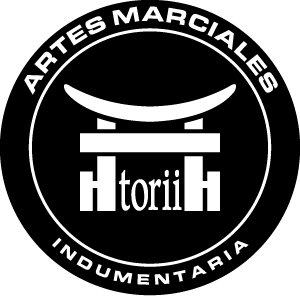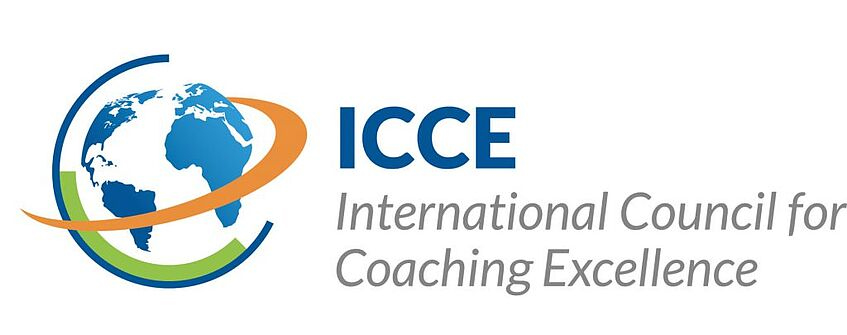ITF Taekwon-Do Competitions: One important element of our system!



Have you ever wondered:
Why does the ITF sanction and promote competitions?
Do I need to participate in competitions?
What are the benefits of participating in competitions:
- as a competitor?
- as a coach?
- as an umpire?
- as a supporter?
- or simply as a spectator?
Why do we have World Cup competitions in the even-numbered years and World Championship competitions in the odd-numbered years?
How will ITF competitions change in the future?
After reading the above, you have probably guessed that the subject of this message is:
ITF Taekwon-Do Competitions
First, a bit of history:
Traditionally, competition has been important in most of the martial arts. Participation in competitions allows us to compare ourselves with other practitioners. We can improve our techniques while at the same time making friends with Taekwon-Do practitioners from other countries.
Our Founder General Choi Hong Hi, encouraged the organization of competitions; he saw them as enjoyable and useful gatherings of ITF Taekwon-Do practitioners and always wanted to include as many competitors as possible.
| Some “firsts” in ITF Taekwon-Do competition history: | |
| 1969 | First Asian Championship – Hong Kong |
| 1974 | First Senior World Championship – Montreal (Canada) (This was the first international competition I attended, although I was there as a spectator.) |
| 1976 | First European Championship – Amsterdam (Netherlands) |
| 1979 | First Pacific Championship – Wellington (New Zealand) |
| 1993 | First Junior World Championship – Moscow (Russia) |
| 2004 | First World Cup – Orlando (U.S.A.) |
| 2007 | First combined Junior & Senior Championships – Quebec City (Canada) |
Back then…
Many years ago when I started attending Taekwon-Do and open martial arts competitions, I noticed that most of them were not very well organized. Often, there would be an obvious lack of basic logistics and planning. All the emphasis seemed to be on winning trophies. The atmosphere was generally very negative due to a climate of violence and the obvious lack of fairness.
As a teacher and coach, I took some of my students to such competitions. However, we soon realized that we came away feeling dissatisfied even when we won. The true spirit of the martial arts and the values taught by the Taekwon-Do philosophy were missing.
And now…
I am pleased to say that today the situation is completely different.
Now organizing international competitions is one of the interesting services that our members expect from the ITF, and we continually work to improve all aspects of these events.
My personal experience with ITF competitions:
Over the years, I have had the privilege of participating in all aspects of competition:
- In the 1970s I was a competitor;
- From 1981 to 1989, I coached the Canadian team;
- General Choi appointed me to two mandates as Chair of the Tournament Committee. (At that time there were separate committees for tournaments and for umpiring);
- I have had the privilege of chairing the organizing committees for five international ITF competitions: the Intercontinental Cups in 1981 and 1985, the 1st World Cup in Orlando (U.S.A.) in 2004, the 7th Senior World Championship in Montreal in 1990, and the first combined Senior and Junior World Championships in Quebec City in 2007.
Obviously, I believe that competition is an important part of ITF Taekwon-Do. This is one of the reasons I asked Maxime Bujold, who has competed in many international tournaments, to be a member of the Organizing Committee for the 2007 World Championships. When we were working on the detailed logistics of the event, Maxime’s comments and suggestions from a competitor’s point of view proved invaluable.
How have ITF competitions evolved?
Some improvements made over the years:
Starting with the 1990 World Championship in Montreal, it was decided that each champion would receive only a medal and a certificate. There was a trophy for the team champions and for the top male and female athletes. The honor comes from being an ITF champion, not from winning a big trophy.
Also, the rules were changed to limit participation to one team per country and one competitor per country in each category. This means that teams from richer countries do not have an advantage over those from countries that could not afford to send more participants.
To make the competitions fairer for everyone, more weight categories were added. The point system for free sparring was modified to allow more balanced performances with kicking and hand techniques. A pre-arranged free sparring event was added to demonstrate the broad range of techniques and the more spectacular aspects of our system.

The ITF has improved the training for umpires and set higher standards for them. They now have more credibility and their decisions are perceived to fairer. Umpires have earned the respect of competitors and coaches.
No discrimination is allowed and no favoritism either. The same rules and regulations apply to everyone.
Competitions are safer than in the past. The use of tatami mats and protective equipment results in fewer injuries.
World Cup or World Championship?
Starting with the First World Cup in 2004, World Cup competitions are held in the even-numbered years, while the combined Senior & Junior World Championships, first held together last year, will be held in the odd-numbered years from now on. The World Championship is a prestigious official ITF competition, open only to athletes who have been selected to represent their country. On the other hand, the World Cup is an open competition. All Taekwon-Do practitioners are invited to participate (including color belts), giving everyone has the possibility of experiencing competition at the international level.
In recent years, international competitions have been held in popular locations. This encourages competitors and their families to plan their vacations around the event.
Thank you:
I would like to take this opportunity to thank all those who have been working to improve the quality of ITF Taekwon-Do competitions in recent years, especially:
- Master Hector Marano and Master Trajtenberg of the Technique & Instruction Committee who have made important contributions to the standardization of the technical system;
- Master Willem Jacob Bos (former chairman of the Tournament & Umpire Committee) who has been actively involved in the improvement of our tournament and umpiring rules;
- Master Alberto Katz, Master Coos van den Heuvel, Mr. Kurt Ottesen, all of the Tournament & Umpire Committee, who are working to ensure the professional quality of our tournaments.
- Mr. Giovanni Cecconato and Mr. Sandy Dunbar who have helped the T&UC in their mission and for leading by example with their great umpiring during many World Championships.
Do I need to compete to get the full benefit of Taekwon-Do?
We are not all naturally attracted to competition, and it does require a considerable investment in time and hard work to be a successful competitor. Nevertheless, you may have asked yourself if you need to participate in competitions in order to get the full benefit of practicing Taekwon-Do.
I would say that, although it is not mandatory, competition is useful to a Taekwon-Do student. Competition at the World Championships is for our elite athletes, but participation in local competitions can be a good learning experience for all our students. However, competition is not for everyone, and it is up to each student to make the decision for himself or herself.
Stress Management
An added benefit from participating in competitions is learning how to deal with stress. We all have stressful situations in our lives, and learning how to deal with the stress of competition will help us to deal with other stressful situations.
A few of the stresses you might feel when competing on the international level are:
- traveling to new places where you don’t speak the language,
- hoping you arrive in time and that your luggage doesn’t get lost,
- becoming overtired,
- eating different kinds of food,
- worry about performing well,
- fear of making mistakes,
- fear of losing,
- worry about letting down your coach and your team,
- nervousness at performing in front of a large audience,
- questioning your abilities when facing a bigger, stronger opponent.
And I am sure those who compete could add many more examples.
Obviously, a Taekwon-Do tournament is a stressful situation, so how can we learn to manage our stress in competition?
Let’s take the example of facing a bigger, stronger opponent in competition. You can react in two ways: negative or positive. The negative way would be to simply give up. After all, your opponent is bigger and stronger, and you have absolutely no hope of winning. So why even try? This defeatist attitude may seem the easiest solution at the time, but what would you learn from acting this way? You would just learn to give up.
On the other hand, you could react in a positive way: Keep calm. Tell yourself you have prepared well for this competition. Remind yourself that size alone doesn’t make a winner. Review your strategy for the match and adjust it to the circumstances. Then concentrate on performing to the best of your ability. Whether you win or lose, analyze your performance and identify points you can improve.
Obviously, reacting in a positive way takes a lot more effort than giving up, but by doing so you are ensuring that you have a positive outcome.
Can you see how learning to deal with stress in competition can be useful in other aspects of life? For example, many people find it extremely stressful to speak in front of a group of people, but you may have to do so for your work or on social occasions such as weddings. If you have learned how to deal with the stresses of competing in Taekwon-Do, you will be able to prepare properly and speak confidently in public, whatever the circumstances.

To get the full benefit from participating in competitions:
If you do choose to participate in competitions, make sure you get the full benefit. To do so, it is essential that you:
- cultivate a positive attitude;
- approach competition as a challenge;
- set goals, then work to achieve them;
- work closely with your teachers and/or coach to prepare well;
- analyze and evaluate your experience after each competition;
- learn from each experience so that you will continue to improve.
But to me, one of the most important elements – and the one that will allow us to benefit fully from the experience – is learning to apply the Do in our training and when participating in competitions. The table in the next section describes how we can do this.
Applying the Do in Competition
In the students’ oath of ITF Taekwon-Do, we swear to observe the tenets of Taekwon-Do: courtesy, integrity, perseverance, self-control, and indomitable spirit.
What does it mean to apply the tenets when participating in competitions?
| TENET | I know this means that I should: | Applied to competitions, it means I should: |
| COURTESY |
|
|
| INTEGRITY |
|
|
| PERSEVERANCE |
|
|
| SELF-CONTROL |
|
|
| INDOMITABLE SPIRIT |
|
|
* At the World Championships held in Québec City (Canada) in June 2007, a brochure about the rules of protocol for ITF Taekwon-Do competitions was distributed to the coaches present.
Click here to read this brochure (PDF, 340 kB).
Competitors should strive to apply the tenets during competitions, but this is also true of all participants in ITF competitions, including coaches, officials, and those who are there to support their team.
The final statement in the student’s oath is: I shall build a more peaceful world, notably with freedom and justice. By applying the Do in competition and in our everyday lives, we will be living up to that promise and setting a fine example for our many young students. We will be assisting them to become good citizens, strong both physically and mentally, and able to make a positive contribution to their communities.

Competitions as a tool for promoting ITF Taekwon-Do
Competitions at all levels offer opportunities to attract positive media attention to Taekwon-Do, the ITF, and your local Taekwon-Do organizations, and media coverage will attract new students.
Media coverage is very important, so choose someone with experience in communications to be responsible for media relations.
Make sure your competitors are prepared for media attention. They should be knowledgeable about Taekwon-Do and able to describe what it means to them. They should be able to explain the goals of competing and the rules of ITF competitions. The goal is to inspire others, so they should emphasize the physical, mental, and social benefits of practicing Taekwon-Do.
ITF Taekwon-Do competitions can be spectacular, so remember to use photos and action footage.
Make it easy for the media:
- Produce good quality press releases with the least possible delay, in order to meet the needs of the media (certainly no more than 48 hours after the end of the tournament);
- Offer detailed background information and exciting photos or action footage;
- Include “human interest” stories about competitors from your area.
If you make all this available to the media before and during the competition, it is very likely that you will get positive coverage.
How will ITF Taekwon-Do competitions be improved in the future?
Here are some of the changes we are considering for the future, based on past experience and on our recent consultations with ITF coaches and umpires:
- Production of manuals on “how to” bid to hold a World Cup or World Championship competition in your city and “how to” organize a tournament at the national, continental, and international levels.
- More improvements in the quality of umpiring, including the possibility of specialized umpires for higher Black Belt levels, particularly for Black Belt patterns.
- Coaches will receive information on a number of subjects such as: how to plan a training program, developing competition strategies, improving breaking techniques, proper nutrition, and mental preparation for competition.
- Electronic scoring, which was developed by ITF-Germany and was tested at Québec 2007, will be used for all matches at the 2008 World Cup in Riva del Garda, Italy.
- Organizing committees for future tournaments will find new ways to improve the organization and presentation of those competitions.
- Safety will continue to be a priority.
- An anti-doping policy is being considered for the future, but enforcement must be possible at a reasonable cost.
- To encourage friendly relations among competitors, more cultural and social activities will be organized in conjunction with international competitions.
- We will continue to cultivate relations with the international media and encourage them to broadcast major ITF tournaments.
- Competitions will take place in new and interesting locations.
- More practical seminars and workshops will be offered in conjunction with competitions and at other times.
- The Business Development Committee and the ITF Communications Committee will continue to assist local ITF organizations to use competitions as a tool to promote our art.
Our main goals are to continue to improve the already high standard of quality in ITF Taekwon-Do competitions and to gain more visibility for our ITF tournament system on the international level.
The ITF has long history and an excellent system of tournaments. I firmly believe that with determination, patience, appropriate strategies, and the necessary resources, our ITF tournament system will gain the broader recognition and worldwide support that it merits!
To sum up:
- ITF Taekwon-Do competitions give us the opportunity to travel to new places and to enjoy fellowship with other practitioners from around the world.
- Everyone can benefit from participating in competitions, even supporters.
- For competitors, competitions are a source of motivation to continue training and striving to improve. For teachers, competitions are an opportunity to share experiences and teaching methods with other teachers.
- Participation in competitions is particularly beneficial to our young people. They learn to set goals and work to achieve them. And participating in competitions is exciting and fun!
- To benefit fully, we must learn to apply the Do when we participate in competitions and in our everyday lives. This means changing our behavior to be in harmony with the Taekwon-Do philosophy.
- Success in Taekwon-Do leads to success in school, at work, and in life.
- Organizing competitions and finding way to improve them is one way the ITF teaches us the Taekwon-Do way of life.
As I mentioned above, competitions are important activities for the ITF and its affiliated organizations. The operation of these competitions must reflect ITF Taekwon-Do values, in particular fairness (justice) and non-violence. The winner must always be the competitor who performed best at the competition, regardless of his country of origin or of his teacher’s name. Healthy competition must not be tainted by gratuitous violence.
As the leader of our organization, I am very proud of the healthy spirit shown by participants during recent international competitions. Everyone who participates – competitors, coaches, umpires, organizers, supporters, and even those who simply come to watch – can learn a lot from these experiences.
I sincerely believe that we can attain these high expectations as long as we apply the Do in all aspects of competition. This means that we will be demonstrating that:
Taekwon-Do is more than a sport, it is a martial art and a Way of life.
Improving the quality of ITF competitions is a team effort, and the ITF team has made a firm commitment to keep going in the right direction (way).
After reading this message, you understand that the quality of our competitions is very important to the members of your ITF team, but I must say that the quality of our competitions is just one reason why so many new members are joining the ITF and why so many of those who had left the organization are deciding to return. They are also attracted because the ITF is a well-structured organization with logical, clearly explained rules that are applied without discrimination or favoritism. The emphasis on the Taekwon-Do philosophy – learning to live the Taekwon-Do way – is another appealing aspect.
The ITF has proclaimed this, the 43rd year of the existence of the ITF, the Reunification Year. This theme was chosen to encourage former members to take a good look at the “new” ITF. We believe they will like what they see and hope they will consider joining the ITF family.
In conclusion, I would like to encourage those who are considering joining the ITF to make the decision now and they will be able to compete at the 3rd World Cup in Riva del Garda (Italy) in October.
All my best to each of you,

Master Trân, Triêu Quân
ITF President
Québec City – May 1st 2008










We would like to thank Master Jerzy Jedut and Mr. Swavek Dydiszko for the pictures.















